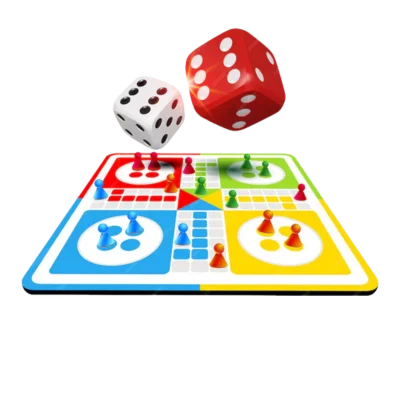Introduction

The Indian online gaming industry is expanding rapidly, with projections estimating its market value to reach approximately ₹70,000 crore (US$8.6 billion) by 2027. This growth has led to increased scrutiny from regulators, necessitating a comprehensive understanding of legal and compliance requirements for game developers and operators. This guide explores the key legal considerations surrounding online gaming in India, with a particular focus on Ludo’s classification, licensing requirements, taxation policies, and compliance strategies.
1. Understanding the Legal Classification of Ludo and Online Games
The legal status of a game in India depends on whether it is categorized as a game of skill or a game of chance:
- Games of Skill: Require significant expertise, strategy, and experience. These are generally legal and exempt from gambling prohibitions.
- Games of Chance: Rely primarily on luck and randomness. These often fall under gambling regulations and may be restricted or prohibited.
Ludo, while traditionally seen as a casual board game, incorporates elements of both chance (dice rolls) and strategy (decision-making). Due to ongoing debates regarding its classification, game developers should consult legal experts before launching a Ludo-based platform.
2. Regulatory Framework Governing Online Gaming in India
2.1 Central Legislation
The Public Gambling Act of 1867 prohibits public gambling and the operation of gaming houses. However, it does not explicitly address online gaming, leaving room for interpretation and varying enforcement across different states.
2.2 State-Specific Regulations
Since gambling laws fall under state jurisdiction, individual states have enacted their own regulations:
- Permissive States:
- Nagaland & Sikkim: Have licensing frameworks that regulate and permit games of skill.
- Goa & Meghalaya: Allow some forms of regulated gambling.
- Restrictive States:
- Tamil Nadu (2023): Initially banned online games of chance but later allowed rummy and poker as skill-based games after a High Court ruling.
- Telangana & Andhra Pradesh: Enforced strict bans on all real-money online games, including skill-based ones.
Given these disparities, game developers must implement state-specific compliance measures to ensure lawful operations.
3. Licensing and Compliance Requirements

3.1 Licensing for Game Operators- Games of Skill: These may not require gambling licenses in certain states.
- Games of Chance: Typically require licenses and are subject to gambling laws.
- Nagaland License: Operators providing skill-based games can apply for a license, with fees varying by game type and duration.
3.2 Age Verification and User Authentication To prevent underage gaming and ensure responsible play:- Implement robust age verification (18+ restrictions).
- Use secure KYC authentication to verify user identities.
3.3 Payment Processing & Financial Regulations Handling financial transactions requires strict adherence to Reserve Bank of India (RBI) guidelines, which mandate:- Secure payment gateways for deposits and withdrawals.
- AML & KYC protocols to prevent financial crimes.
- Implement robust age verification (18+ restrictions).
- Use secure KYC authentication to verify user identities.
3.3 Payment Processing & Financial Regulations Handling financial transactions requires strict adherence to Reserve Bank of India (RBI) guidelines, which mandate:- Secure payment gateways for deposits and withdrawals.
- AML & KYC protocols to prevent financial crimes.
4. Taxation Policies Impacting Online Gaming
4.1 Goods and Services Tax (GST) As of October 2023, India revised the GST on online gaming:- A 28% GST applies to the full contest entry amount, irrespective of whether it is a game of skill or chance.
4.2 Income Tax (TDS) on Winnings
- 30% TDS is applicable on winnings exceeding ₹10,000 per transaction.
- The Income Tax Bill (2025) aims to redefine ‘online games’ and standardize tax obligations.
These changes necessitate robust financial compliance mechanisms for operators.
5. Advertising & Consumer Protection Regulations
5.1 Advertising Standards
The Advertising Standards Council of India (ASCI) mandates responsible gaming promotions:- Age Restrictions: Ads must clearly state that gaming is for 18+ users.
- Risk Disclosures: Ads should include disclaimers about financial risks.
- No Misleading Claims: Promotions cannot imply gaming as a source of income.
5.2 Content & Privacy Compliance- Adhere to the Information Technology Act (2000) to avoid portraying controversial content.
- Ensure data protection compliance under IT Rules (2011) and GDPR (if operating internationally).
6. Emerging Legal Developments in Online Gaming
- roposed Federal Law: The Ministry of Home Affairs is exploring a unified gaming law to regulate online gambling at a national level.
- Supreme Court Interventions (2025): In January, the Supreme Court temporarily halted tax proceedings against 49 gaming firms, pending final hearings in March 2025.
As legal frameworks continue evolving, gaming companies must remain updated and adaptable.
7. Compliance Recommendations for Game Operators
To navigate India’s complex legal landscape, gaming operators should:
✔ Implement State-Specific Compliance Measures – Identify users’ locations and tailor game accessibility accordingly.
✔ Ensure Taxation Adherence – Deduct and remit GST & TDS as required.
✔ Follow Responsible Advertising Practices – Align promotions with ASCI standards.
✔ Secure Legal Consultation – Work with gaming law specialists to stay compliant.
Get Expert Guidance for Winning Ludo Game Development

Conclusion
The Indian online gaming industry operates within a dynamic and multi-layered regulatory framework. As gaming laws, taxation policies, and compliance requirements evolve, ludo game development companies in 2025 must stay legally informed and ensure full compliance to build a sustainable, legally sound, and successful gaming platform.



